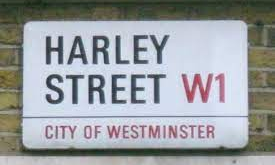1 December 2022
NHS Sell-off
Big Trouble
by Don Urquhart

We are governed by people who do not believe in public services and are heavily influenced by Tufton Street PR firms, paid by undisclosed people to promote the sale of the NHS to private companies. It is rare that a BBC political programme goes by without its Tufton Street siren pushing the privatisation line.
Meanwhile the Government has announced that it will be adopting a “vaccine taskforce” approach to solving the major problems in the Health Service. Kate Bingham will be involved.
This from the government website:
Government to use Vaccine Taskforce model to tackle health challenges
- Funding for innovative research into improved treatments, including cancer immune therapies or vaccines and game-changing weight loss medication and technologies, to accelerate their development and rollout
- Prime Minister, Health and Social Care Secretary and Business Secretary will meet with key industry experts, global CEOs and NHS leaders to leverage further investment and ensure NHS patients benefit from cutting-edge new treatments
- Builds on £1 billion investment since publication of Life Sciences Vision and delivers on commitments to cement the UK as a life sciences superpower
The original “vaccine taskforce” approach involved appointing a venture capitalist to visit her friends in the pharmaceutical industry offering them bags of money to come up with a vaccine in short order. I suspect that their response was “Yum! Yum!” If you dangle the right incentives you will get results.
I am sure the initiatives listed on the website solve real problems and have the potential to improve outcomes for people but they do not include:
- cutting waiting times for A&E, doctor’s appointments, cancer diagnosis and operations of all sorts;
- employing enough doctors and nurses to give them and their patients a less stressful experience in medical situations.
- installing enough beds to keep patients out of the corridors;
- fixing up the social care services so that people can be safely discharged from hospital into the world.
No! Rather Mr Sunak gravitates to his comfort zone – throwing money at entrepreneurs. I suspect they will be framing contracts to ensure that profits are privatised and losses nationalised.
I wish we could rely on Her Majesty’s Opposition to force the government to deliver on the less glamorous side of health and social care but I am a long way from being convinced that they would address the big issues properly. Sir Keir Starmer and his shadow Health Secretary Streeting are both recipients of financial support from donors with interests in private health care.
The political programmes on TV got excited by this news item last week:
NHS bosses in Scotland discuss having wealthy pay for treatment
NHS leaders in Scotland have discussed abandoning the founding principles of the service by having the wealthy pay for treatment.
The discussion of a “two-tier” health service is mentioned in draft minutes of a meeting of Scotland’s NHS leaders in September.
They also raise the possibility of curtailing some free prescriptions.
Scotland’s First Minister Nicola Sturgeon said the principles of the NHS were “not up for debate”.
In practice we now have a many-tiered health service. Our Prime Minister shows the way as The Daily Mail reports:
Rishi Sunak is registered with a private GP that guarantees same day appointments, it was claimed today.
The revelation comes less than 24 hours after Mr Sunak vowed to protect the NHS as being free for all at the point of use.
The Prime Minister reportedly uses a clinic in West London which charges £250 for a 30-minute consultation. It also offers appointments in the evenings and weekends.
Patients using the service pay £150 for virtual consultations and between £400-500 for home visits.
In the past few months friends and relations have paid for treatment from skin rashes to major operations either because they could not get the appropriate NHS treatment or they would be dead before it arrived.
Most of them but not all had health insurance.
Here’s the never knowingly undersold pitch of Nuffield Health:
Our Pricing Promise

Our prices will always be totally transparent and when you are quoted an all-inclusive procedure price it will be inclusive of all costs – with no hidden surprises.
If you find an alternative private hospital in your local area offering a better price for the same procedure, sold with the same service conditions, we’ll lower our price to equal it.
Here, a private cardiology clinic says to find an insurer first if you need a life-saving operation:
A private health insurance scheme will allow a patient to see a cardiologist privately thus bypassing the long waiting times in the NHS. The insurance company will have a list of cardiologists whom they recognise and have a contract with for providing cardiology services.
If a patient has been advised to see a cardiologist, for example by their GP, the patient is usually required to contact their insurance provider who will then advise them of the cardiologists available in their area whom they recognise. Patients may be given the names of 2 or 3 cardiologists and asked to research their preferred specialist themselves. Alternatively, the patient may want to see the specialist who can see them sooner. The insurance company will provide the patient with ‘pre-authorisation’ to see a particular cardiologist. The cardiologist will then invoice the insurance company for the consultation and any tests that might have been undertaken – such as ECG, echocardiography, 24 hour ECG monitoring etc. Most insurance companies will have a fee structure or schedule that they expect the cardiologist to adhere to. The insurance company will expect the cardiologist to adhere to the fee schedule for the consultation and test fees. However, some private cardiologists elect to have their own fee schedules that are often greater than the fee schedule recommended by the insurance company leading to a shortfall. This shortfall payment is a bill that the insurance company expects the patient to pay.
The ability of NHS consultants to carry out private practice in their non-NHS time is an essential part of the flexibility and freedom built into national contracts.
This “pat ourselves on the back” item from the Independent Health Providers Network:
The covid19 pandemic has demonstrated just how critical all healthcare workers, including those in the independent sector, are in keeping our nation safe. Indeed, with over 85,000 people employed or contracted by members of the Independent Healthcare Providers Network (IHPN), the independent health sector plays a vital role working alongside the NHS in treating patients and keeping the nation well for longer.
Consultants Laing Buisson capture the business opportunities for private healthcare occasioned by the defunding of the NHS:
There does appear to be a direct correlation between the well-publicised and lengthening NHS waiting lists and waiting times for elective procedures and diagnostics and enquiries around self-pay. Since those waiting lists are not falling, we would expect demand to be sustained as people seek to access treatment. The question for the private healthcare sector is whether it has the staff and resources to meet that demand.
The NHS is being systematically sold off.
According to a report by the Commonwealth Fund there are 515 private hospitals in the UK. There are more nurses working for private hospitals and agencies than for the NHS.

Nye Bevan told us that the NHS would last as long as there are folk with the faith to fight for it. It is in big trouble now.


